HomeFeatures
Prince Of Persia’s creator has seen the series “struggle to find its identity” at Ubisoft, but thinks they’ve finally found an elegant solutionJordan Mechner on the sands of time, and making games based in history
Jordan Mechner on the sands of time, and making games based in history
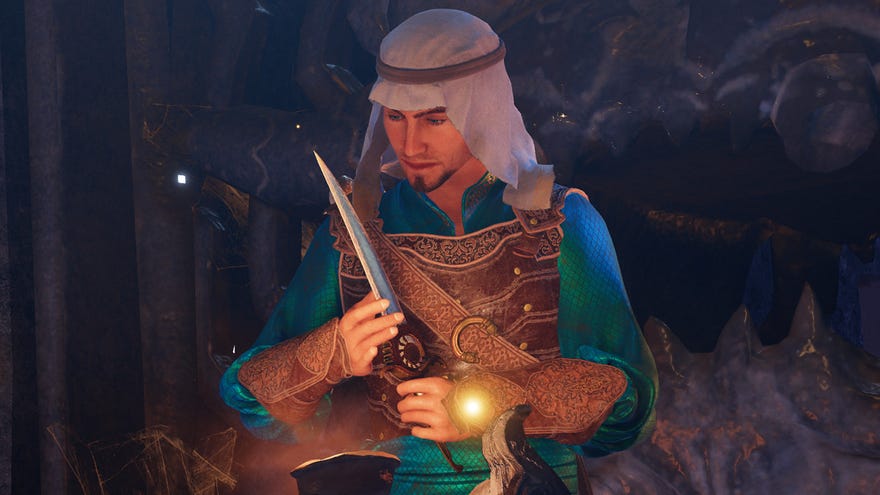
In the mind of Jordan Mechner, the sands of time flow both ways. It happens even when he doesn’t mean it to. When making theMyst-likeadventuregameThe Last Express, he set his story on a train crossing Europe in 1914 - the same year Mechner’s own grandfather became a teenage refugee, his life in a Jewish enclave on the Austro-Hungarian border shattered.
“He was drafted as a soldier,” Mechner says. “So I’m sure that in the back of my mind, in creating The Last Express, I was thinking of the terrible impact that war had on Europe and my grandfather’s experience as well. What’s interesting to me is that a lot of these echoes are unconscious.”
Mechner may not have been thinking of his grandfather when drafting the Agatha Christie-esque adventures of Robert Cath, an American doctor on the run from the police. But the personal resonance can hardly be called a coincidence. History-making and storytelling is a habit in the Mechner family. That same grandfather, Adolf Mechner, wrote a memoir that filled 1,000 pages and four loose-leaf binders in the 1970s. It became a kind of family heirloom - one Mechner initially ignored while he got to grips with the Apple II.
Shortly after the memoir was finished, however, when Jordan was the same age his grandfather had been at the outbreak of war, he started writing his own journals. Some of those have since been published, as accounts of the development ofKaratekaand the original Prince Of Persia. Now, Mechner has written a non-fiction graphic novel, Replay. In it, he expertly weaves his own story with that of his father and grandfather, hopping between timelines as if living in all of them at once.
Image credit:DotEmu
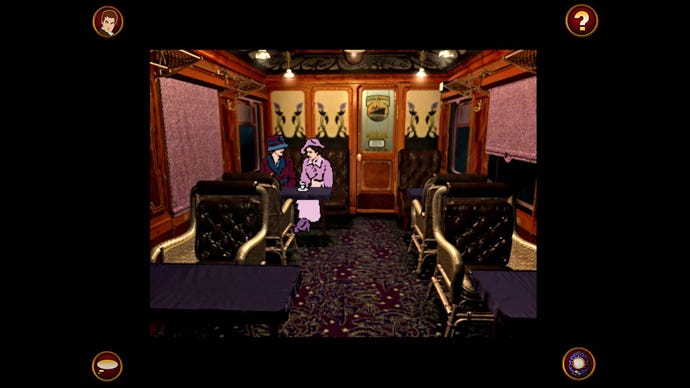
Mechner’s first project with commercial potential was a version of Asteroids for home systems - right up until Atari began to clamp down on clones. But even in the age of the arcade, his storytelling instincts began to take hold. Mechner’s next game, Deathbounce, evolved from “just a triangular spaceship shooting in an abstract situation” to showing the pilot climb into the craft at the start of a level, telling an implicit tale of brave Earth defence.
Image credit:Digital Eclipse
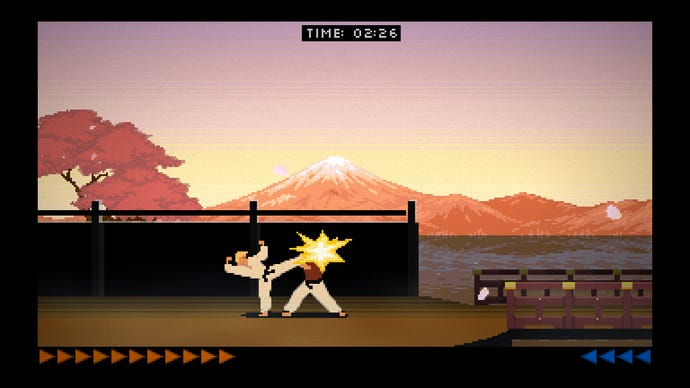
“The rotoscoping for The Last Express was really a way to capture the nuances of an actor’s performance, the body language and the facial expressions, and yet to do that in a way that was stylized,” Mechner says. “The visual inspiration was graphic novels and Art Nouveau. I didn’t want it to look like digitised video - I wanted it to look like an animated pen-and-ink drawing that had magically come to life.”
Nonetheless, The Last Express remains an underappreciated masterpiece - its performances and tangible old world atmosphere still standing up. And ultimately, Mechner’s conviction that animated actors were the future of gaming was borne out. The gushing cover quote of Replay comes from Naughty Dog creative head Neil Druckmann, who in many ways has shaped the games industry in Mechner’s image. “Incredible evocative,” Druckmann writes of Replay. “A powerful emotional experience.”
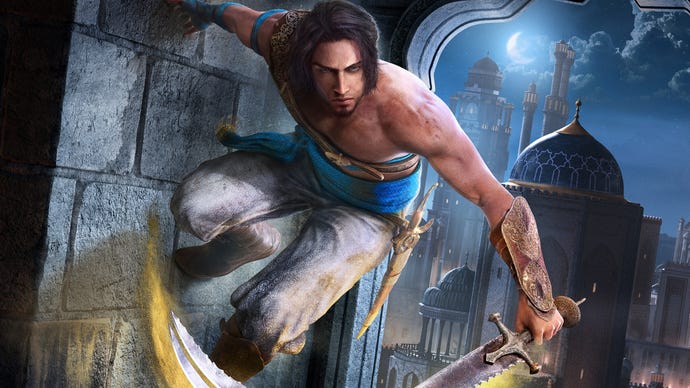
Like Druckmann, who co-createdThe Last of Usas a TV series for HBO, Mechner has a knack for adapting his own work. When Yves Guillemot called him in 2001 to propose that Ubisoft make a new Prince Of Persia, Mechner hit it off with the team. “I didn’t realise that I was going to end up moving to Montreal and writing the script and being so involved in that project,” he says. “It was really that I fell in love with it and wanted to do it.
“With a new generation of consoles, there was something about Prince Of Persia that almost magically fit the kind of game that we were wanting to make. That’s something that doesn’t happen so often in one’s career, so when we felt that excitement happening, I just went all in.” The game’s signature rewind mechanic is actually an echo of a similar tool in The Last Express. Time has a way of working itself into practically everything Mechner works on.
Later, Mechner took Prince Of Persia to Hollywood, pursuing his cinematic inclinations to their logical conclusion. He cut together a trailer out of PlayStation 2 footage and played it to Disney and Jerry Bruckheimer as part of his pitch for a movie. “I knew that I wouldn’t be taken seriously,” he says. “That in Hollywood at that time, the idea of a game creator wanting to write the screenplay for the film adaptation would be viewed with great suspicion. The story that I pitched and wrote had to stand on its own merits.”
In the decades since, the Prince has mostly lain dormant, as a Sands of Time sequel morphed into Assassin’s Creed. “For a while there, Prince Of Persia at Ubisoft had to struggle to find its identity as clearly separate and distinct from Assassin’s Creed,” Mechner says. “You can see that in the 2008 reboot, and then several Prince Of Persia projects that were developed and cancelled, that didn’t go the distance.”
Mechner himself moved to Montpellier in 2016 to work on one such project - greenlit with an eight-figure budget and an intended team of several hundred people. It’s a story told in the course of Replay with wry self-deprecation. In one scene, Mechner enthuses in his LA bathroom about the prospect of a sprawling, open-world Prince Of Persia. The interjections of his wife, Whitney, about the capacity of AAA development to destroy lives and families, go unanswered as Mechner enthuses about riding across Persia on horseback, camel or magic carpet.
Image credit:Rock Paper Shotgun/Ubisoft
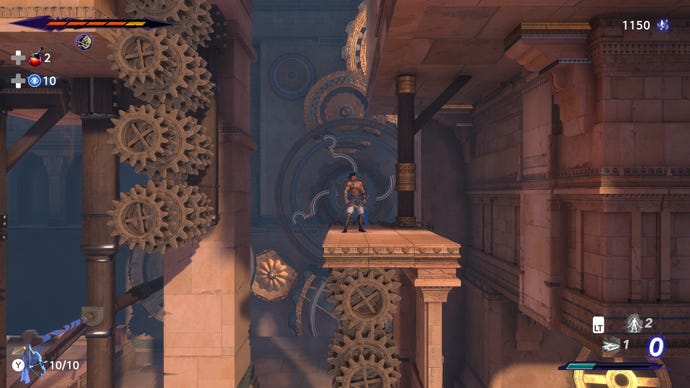
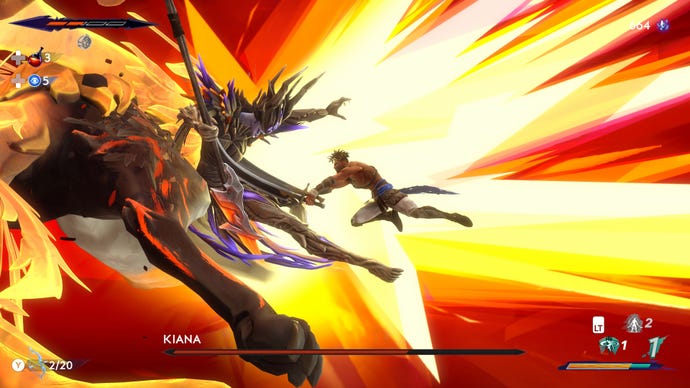
Over time, things slid sideways - Ubisoft deciding that the project should drop the Prince Of Persia setting in order to avoid a huge investment in an IP the publisher didn’t own. Today, Mechner still lives in Montpellier, but is dedicated to writing and drawing his graphic novels. Meanwhile, at long last, a new team in the same city has found a fitting shape for Prince Of Persia in 2024 withThe Lost Crown.
There’s a circular poeticism to the fact that Mechner, the New Yorker, has found a home in France - the same country his father fled through during the Second World War on the way to America. And that Prince Of Persia, which started in New York, has found its place in Montpellier too. None of this is lost on Mechner.
“We could say that these time echoes are accidental,” he says. “But it’s difficult to find which direction causality flows in. In the opening of The Sands Of Time, I have the Prince say that time doesn’t flow in just one direction. It’s like an ocean in a storm. And then in writing and drawing Replay, I found things that I couldn’t explain simply in terms of logical sequence. There’s a conversation between the past and present. I can’t explain it, but I can appreciate it.”